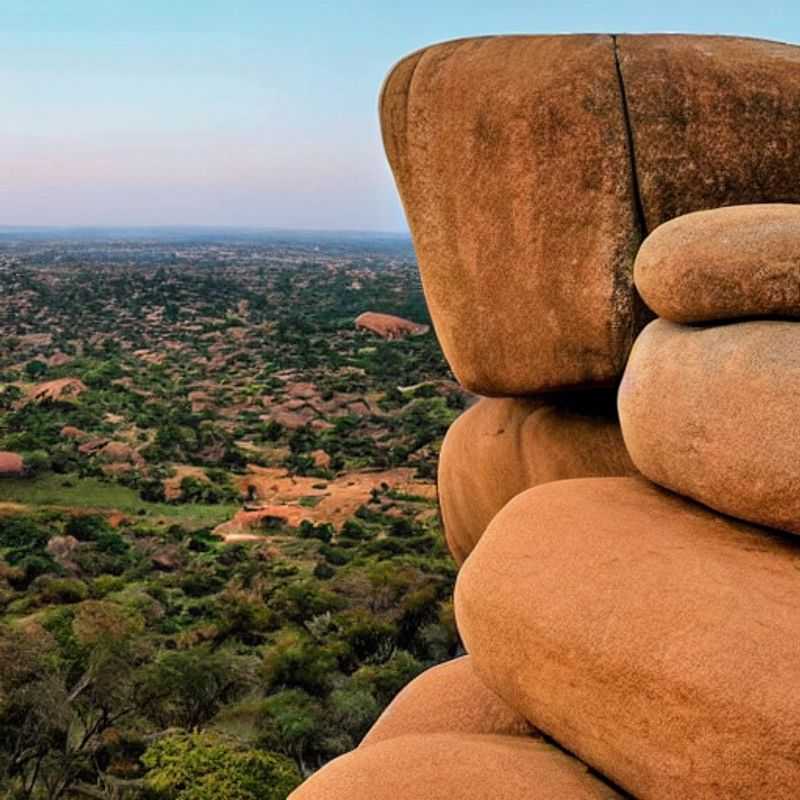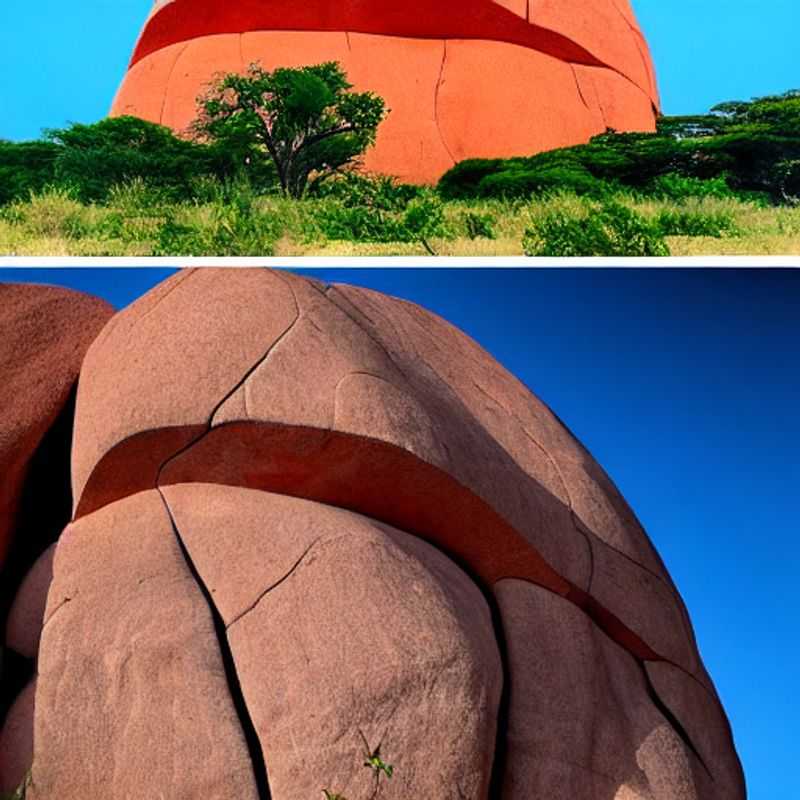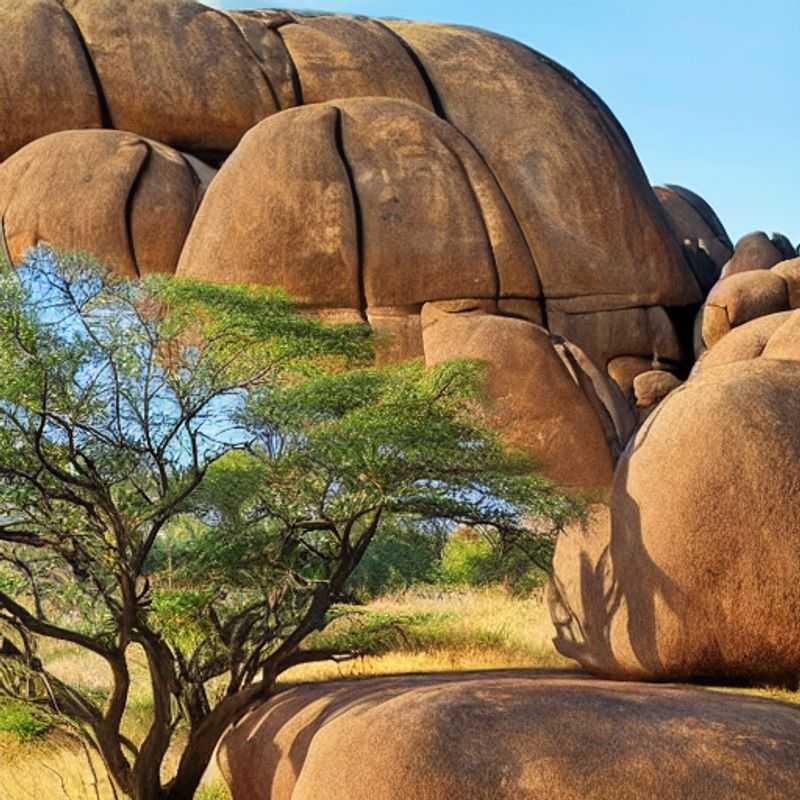Is Matobo Hills, Zimbabwe, a Summer Holiday Hotspot? Top 4 Things to Do

Is Matobo Hills, Zimbabwe Safe for Visitors in 2026?
Planning a trip to Matobo Hills, Zimbabwe in 2026? Safety is a paramount concern for any traveler, and understanding the current situation is crucial. Generally, Matobo Hills is considered a relatively safe destination for tourists, particularly within established tourist areas and national parks. The Zimbabwean government and park authorities prioritize visitor safety, and there are typically security measures in place. However, like any travel destination, it's wise to be prepared and informed. Always check the latest travel advisories from your country's foreign office before booking your trip. These advisories provide up-to-date information on security, health, and any potential risks. When visiting, stick to designated tourist routes and trails. Avoid traveling alone at night, and ensure you have reliable transportation. Hiring local guides is highly recommended, as they possess invaluable knowledge of the area and can navigate you safely. Be aware of your surroundings, and take standard precautions against petty crime, such as securing your valuables. While wildlife is a major attraction, always maintain a safe distance from animals and follow the instructions of park rangers. For 2026, assuming no significant geopolitical shifts, Matobo Hills should remain a viable and enjoyable destination for those who exercise due diligence and follow safety guidelines. Responsible tourism practices contribute to the continued safety and preservation of this UNESCO World Heritage site.

You may also like
Matobo Hills in Summer: Sun, Stones, and Seriously Shady Secrets (Is it REALLY a good idea?)
Zimbabwe's Matobo Hills: A Summer Sizzle – Myth, Mystery, and Mosquitoes (A Guide's Honest Take)
Beat the Heat (and the History!): Matobo Hills Summer Adventure – A Guide to Sun-Safe Exploration
Matobo Hills Summer Holiday: Sunstroke or Stone-Age Wonders? A Practical Guide for the Adventurous
Exploring Zimbabwe's Matobo Hills in Summer: Ancient Legends, Modern Sunblock, and Avoiding the Wildebeest Stampede
Sun's Out, Stones Out! Your Guide to a Safe and Sensational Matobo Hills Summer Trip
Matobo Mystery Tour: A Summer Expedition into Zimbabwe's Historical Heart (and How to Stay Cool Doing It)
Zimbabwe's Summer Surprise: Unveiling the Secrets of Matobo Hills – A Blend of History, Hiking, and Hydration
Jambo, fellow adventurers! So you're thinking of tackling the Matobo Hills in Zimbabwe, on a budget, and solo? Magnificent choice! The shoulder season, between summer and fall, offers warm, pleasant weather, perfect for exploring without the scorching heat. Think comfortable temperatures ideal for hiking and exploring ancient wonders.
Now, about those Matobo Hills… Prepare to be mesmerized by granite boulders sculpted by time, whispering tales of ancient civilizations. This place pulsates with history, legend, and a touch of the mystical. Imagine yourself amidst these colossal rock formations, feeling the weight of centuries, a truly humbling experience. You can find guided tours, ranging from $20-$50 per tour, depending on the length and specifics, remember to bargain gently!
Food, glorious food! Expect hearty, delicious Zimbabwean fare. Sadza (a thick maize porridge), often served with meat stews like nyama (beef), chicken, or goat, is a staple. Street food is generally affordable, with a decent meal costing about $5-$10. A sit-down restaurant experience might cost $15-$30. Local markets are a feast for the senses, offering fresh produce and spices. Remember to try the local beer or a refreshing Mazoe orange crush.
Transportation within the Matobo Hills is quite manageable. Local kombi (minibuses) are cheap and cheerful, costing around $1-$3 per ride. Hiring a car isn't essential, but it offers greater flexibility if you are feeling adventurous. For day trips, however, kombi is more than suitable.
The people of Matobo are incredibly welcoming and friendly. Expect warm smiles and engaging conversations. The locals often wear brightly colored clothing, a vibrant reflection of their culture. English is widely spoken, so communication shouldn't be a problem. Remember to be respectful of local customs and traditions and always ask before taking photographs of people.
Music and soundscape: expect a blend of traditional Shona music with its unique rhythms and instruments, often echoing through the hills, a truly remarkable experience. You might also hear the sounds of nature – birdsong, rustling leaves, and the distant bleating of goats.
The architecture in the area is predominantly rural, with traditional round houses made of mud and thatch. You may find several structures with a modern twist, but the traditional methods are the most common sights within the Matobo Hills.
Regarding safety, common sense prevails, as always. Be aware of your surroundings, particularly at night. Keep your valuables secure, stick to well-lit areas after dark, and avoid walking alone in isolated areas. It’s recommended to inform someone of your plans and expected return time.
Flora and Fauna: The Matobo Hills are home to a remarkable variety of flora and fauna. Keep an eye out for the iconic baobab trees and diverse birdlife. Keep in mind, however, that some wildlife can be dangerous, so follow any warnings or advisories provided.
To sum up your budget trip: Accommodation (dorm or basic guesthouse): $10-$20 per night. Food: $15-$30 per day. Activities and transport: $20-$50 per day. Therefore, a 5-day trip could cost anywhere from $275-$475. This estimate is flexible and entirely depends on your choices and spending habits.
Remember, this is just a starting point. Thorough research is recommended before your visit! Have a fantastic trip, and share your stories when you return! Safe travels!

You may also like
Matobo Hills 2026: The Backpacker's Challenge and Reward in Zimbabwe
Matobo Hills in Zimbabwe presents a unique blend of challenges and rewards for backpackers venturing there in 2026. The rugged, rocky terrain is undoubtedly a primary challenge, requiring sturdy footwear and careful navigation, especially during the warmer months. Water sources can be scarce in certain areas, making it crucial for backpackers to carry ample supplies and know how to purify water effectively. Furthermore, wildlife encounters, while a major draw, necessitate an understanding of local animal behavior and safety protocols. However, these very challenges unlock profound rewards. The unparalleled natural beauty of the granite kopjes, ancient San rock art sites, and diverse ecosystems offers a truly immersive wilderness experience. The sense of remoteness and tranquility is a significant reward for those seeking to disconnect from the modern world. Moreover, the rich cultural heritage of the Matobo region, including its historical significance and the opportunity to interact with local communities, adds a deep layer of fulfillment. For the prepared backpacker, Matobo Hills in 2026 promises an adventure that is both demanding and incredibly enriching, a true test of resilience met with breathtaking discoveries and lasting memories. Remember to prioritize planning and safety above all else.